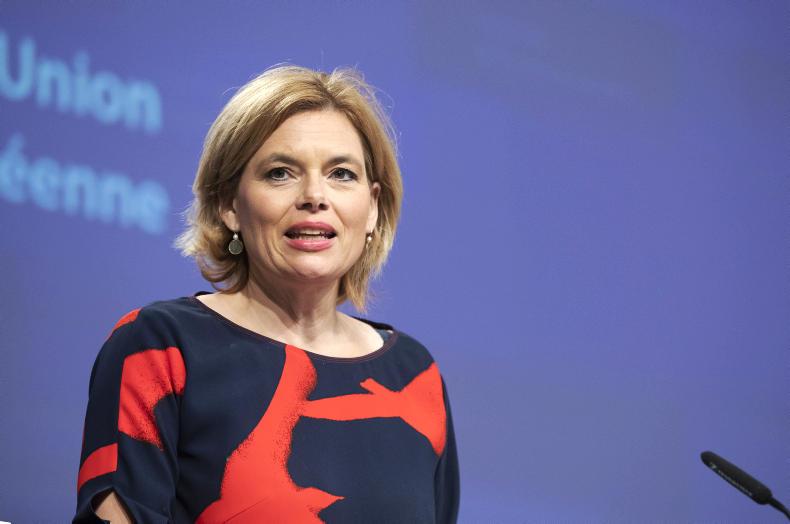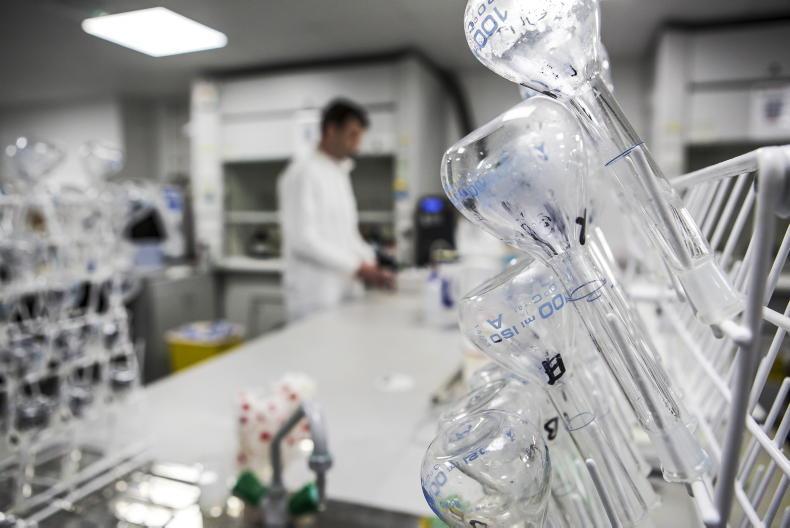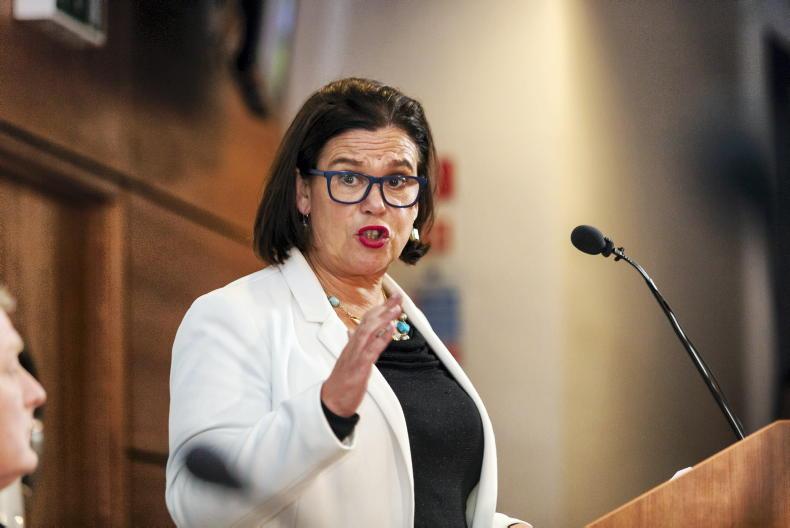The most immediate issue for Irish farmers this week is coping with another spell of exceptionally bad weather. The political storm arising from the golf in Galway will not be an immediate priority but policy development is ongoing and requires an Irish political input sooner, not later.
The first big event next week is the informal gathering of the agriculture ministers, convening in Koblenz, Germany, under the German presidency of the EU. Another new face will fill the Irish chair and it is vital that the chair is filled for the two-day gathering next Monday and Tuesday. Germany has made it clear that concluding a CAP agreement is a strategic priority during its term, which finishes on 31 December.
Priorities for German presidency
There are three issues identified by the German minister for agriculture Julia Klöckner within the CAP and Farm to Fork frameworks that will shape EU and Irish agriculture for the next decade and beyond and tabled for discussion at the gathering. The debate will be framed by the response of agriculture to the pandemic and how the chain worked.
This is probably the most important issue of all for Irish agriculture and our future trade with the EU
The ministers will also consider the issue of origin and labelling and how best to deliver on this issue without affecting the single market. This is probably the most important issue of all for Irish agriculture and our future trade with the EU.
At present, for example, it is impossible to secure a listing for Irish beef in French supermarkets and, given the dependency of all our sectors on exports to the EU 27, this is an area in which the Irish Government must proceed with great care.
Welfare label
Another area down for discussion is the development of an EU-wide animal welfare label. Enhanced animal welfare has been a long-standing element of German agricultural policy and is something that has been consistently promoted by European Commissioner for Agriculture Janusz Wojciechowski, including in a recent interview with the Irish Farmers Fournal.
With this meeting of minds, a country like Ireland that requires access to the entire EU single market and beyond for livestock transport, has to be particularly vigilant and make sure to represent Irish farmers’ interests in this debate.
There is more scope than ever for national input in policy formation but it must fit within the EU framework and secure EU approval
Looking beyond next week, the German presidency of the EU will be pushing to advance and ideally conclude the CAP agreement for the next seven years.
The coming weeks in this process are vital as future EU agricultural policy is shaped under the EU Farm to Fork strategy.
There is more scope than ever for national input in policy formation but it must fit within the EU framework and secure EU approval.
Again, an Irish Minister for Agriculture is vital in leading the debate internally and formulating a national strategy that best serves Irish farmers.
While CAP reform is a once-in-a-decade issue, Brexit is a once-in-a-lifetime event and no sector within the economy of the EU 27 is exposed to the extent that Irish agriculture is, particularly beef.
Within the EU, trade deals are managed by the Commission for Trade, led by under-fire Commissioner Phil Hogan, with the negotiations with the UK led by Michel Barnier.
At this stage, a meaningful deal on a future trading relationship between the EU and UK looks unlikely, which puts Irish agriculture in the firing line to absorb a cost of €1.7bn according to Irish Government estimates.
This is a further reason why stability is needed at ministerial level in the Department of Agriculture and why changing the Commissioner for Trade would be such a huge risk at this time. Even if Commissioner Hogan was replaced with the most capable high-profile alternative, the European Commission is most likely to fill the trade portfolio internally to avoid leaving it vacant in the coming critical weeks for the UK negotiation. A new Irish commissioner is likely to be allocated a much more minor portfolio and a new Commissioner for Trade would be unlikely to have either Hogan’s insight or his interest in the EU-UK trade dynamic from an Irish perspective.









SHARING OPTIONS